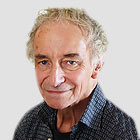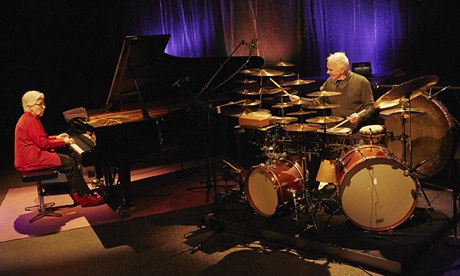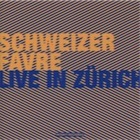Seventy years ago, the small village of Kommeno in Greece experienced a tragedy from which it has never really recovered. What happened there on August 16, 1943 was not unusual in the context of a war pursued by an enemy determined to stamp out all opposition. Other towns in Greece and its islands, such as Distomon and Kalavrita, had suffered similar fates—just as other towns and villages far beyond Europe would endure comparable evils in later wars. But one thing that makes Kommeno a little different from its cousins in Greece and elsewhere is its attempt to reach for something more profound and healing through the powers of music.
On that day in 1943, the German Wehrmacht herded 317 men, women and children into the village square. The figure included 42 children under 10, 29 infants under 4 and 13 babies. Within minutes, those 317 people were dead, murdered by the German army. Almost half of the village population had been wiped out. What was their crime? They were suspected of harboring or having given support to Greek Partisans. As it happens, the accusation wasn't true, but there can be no excuses or justifications for this act. One detail gives the events an added poignancy. Two days earlier, the people of Kommeno thought they had proven their innocence of the charge to the local Italian military commander and could go about their lives unmolested. A wedding went ahead as planned on August 15, and the village celebrated into the night. The following day, bride and bridegroom lay among the dead, still dressed in their fine clothes.
How do you heal after such a crime? How do you recover? Forgetting is impossible, and forgiveness is always compromised by memory. In each year following the massacre, the villagers of Kommeno honored their dead, trapped in a cycle that some found increasingly sterile. It was in 2008 that the mayor of Kommeno, Christos Kosmas, realized that there had to be a better way of paying tribute, not just to those who died on August 16, 1943 but to the innocent victims of all wars. And so began Kommeno's "Commemorative Events"—an annual festival of culture, within which art in all its wonderful forms could express grief, loss and sadness but also hope and a trust in the capacity of good people to transcend such atrocities.
In the first summer, in 2008, German drummer-composer Gunter Baby Sommer was invited to play at the festival by its organizer, percussionist Nikos Touliatos}. At the time, Sommer knew nothing of the history of the village. What he learned on that visit moved him profoundly. He understood that he had to do something that might provide a fitting memorial. That came about last year with the release of
Songs for Kommeno, an elegy founded upon a unique musical collaboration between the Dresden-born drummer and four Greek musicians, including the wonderful singer
Savina Yannatou.
"The evening before my solo concert, I met the mayor of Kommeno," Sommer explained. "He asked if I knew of the history of the village and the massacre that had occurred. I said, 'No,' and he told me everything. I was shocked and just wanted to leave immediately."
But Sommer didn't leave. He stayed and worked through his initial reaction. As he told us, "I was in Kommeno for a week and promised the local people I would find a way to tell their story and take their message out into the world. I am a German and must do something for these people and their loss."
Out of that week in Kommeno, the idea grew for a CD of music dedicated to the village and its people, alive and dead. "I felt guilty for that generation of our fathers," Sommer says, "but I'm not a politician. I'm a musician, and the choice for me has to lie in music. I think music can also be political, and music cannot close its eyes to history or to what is happening in the present. I came out of the political East Germany and have always understood my relationship to society and politics. I learned that from
Max Roach,
Art Blakey and
Charles Mingus."
And it most certainly took a musician of Sommer's stature to pull off a project as weighty, socially and musically, as
Songs for Kommeno. Growing up in East Germany had sharpened Sommer's thinking both about his art and politics but without either his work or his personality ever becoming doctrinaire or rigid. Sommer belongs to that circle of extraordinary drummers that has developed out of Northern Europe's jazz and improvised-music scenes, and long before the Berlin Wall came down he was in demand on both sides of the Iron Curtain. Now approaching his 70th birthday, Sommer's discography exceeds 100 recordings, and he has played with the cream of Europe's and America's improvisers, including bassist
Peter Kowald and pianist
Alex von Schlippenbach, saxophonists
Peter Brötzmann and
Evan Parker, as well as trumpeter
Wadada Leo Smith and the great
Cecil Taylor.
From the outset, it was clear that
Songs for Kommeno had to be a collaboration between Sommer and Greek musicians. "I had known
Floros Floridis [reeds] since 1980," Sommer tells us, "when I was doing some pioneer work in Greece in improvised music with Wadada Leo Smith and Peter Kowald. After that, we played together often. I got to know Savina Yannatou through Peter Kowald. The music had to sound Greek. And so I met
Evgenios Voulgaris, who knows and understands Greek traditional music, through Floros. They both knew the bassist
Spilios Kastanisvery well. Through that collaboration, we were able to bring that Greek soul into the music alongside contemporary improvisation."
It is this that makes Songs for Kommeno so very special. It does much more than articulate a tragedy. It is a righteous "Never again," a "No pasaran" ("They shall not pass") to the future— not just for Greece but for any place and time. For this is music of power and beauty, from Voulgaris' opening, "Tears," through his gorgeous, tender "Lullaby" into the deep heart of the record and Sommer's remarkable episodic suite "Marias Miroloi" (Maria's Lament). It speaks in all tongues for victims everywhere.
As this record has been so much a collaborative effort, it would be wrong to single out any one of these five musicians for praise. But the choice of Savina Yannatou to articulate this music was an inevitable one. Hers is one of the great and most expressive voices of world music, her talents and reputation as an artist matched by but a handful of others. Who else could convey such terrible beauty without resort to words that would themselves only distort? Who else has the ability to channel the blues and jazz while remaining true to the music of her country? It seems, however, that Yannatou was initially unsure whether she should take part in the project, as she explains:
"I was very reluctant at the beginning. I don't like to use people's tragedies for making music. But anyway, I was more convinced by Floros that this project would be more a project against war and violence. Finally, it was not so open, but never mind. For the people of the village, I think it means a lot, and that is what matters."
This is an argument that Sommer takes up and addresses head on when he says, "Kommeno is a symbol for criminality in war. War is itself already a crime, but it keeps on happening. Oradour-sur-Glane in France in 1944, Srebrenica in Bosnia, Syria, the Congo—Songs for Kommenostands for many places where these crimes happen."
Because to take a stand artistically or morally must require a knowledge of history. Again, and as with each of these five musicians, it is that awareness of tradition and of history and of the possibility of combining traditions that makes Yannatou's contribution so special. As she points out, "It is obvious that these vocals are based in different cultures, but it is also an important part of free-jazz singing. So it is also a part of the American-Northern European approach, and this is how I use them. I use them as a part of personal expression when I improvise. I mix them all without thinking where and how."
And there is in her singing—wordlessly—something that succeeds in conveying a sense of place, time and history, for which the only immediate points of comparison that come to mind are the Scottish singer Maggie Nicols and American diva Cathy Berberian. We ask how she approaches his work with a project like this.
"There is also Diamanda Galas. I was very influenced by her vocal techniques, especially when I saw her singing live. As it happens, with Maggie Nicols we have collaborated in some concerts recently. Yes, somehow it is near. I can express myself more easily without words— with sounds that remind of words, but these words have no meaning. This inarticulate way to communicate feelings instead of meanings is stronger for me and also for the audience. This is what I have been doing for years, besides singing songs. It is a liberating process for me."
It is a liberating process for the listener as well, and Yannatou's description of her approach accords immediately with Sommer's intentions for her. He says, "In this project, Savina is not there as a soloist. I needed her voice as a color, as an instrument in this project. It is the timbre of her voice that is so very powerful here."
Listen to "Marias Miroloi" and how Voulgaris' yayli timbre combines with Floridis' bass clarinet and how Yannatou's wordless vocals swoop and soar over drums and bass in a way that is heart-wrenchingly affective. And the contrast with this when later in the track a church bell sounds, and Maria Labri, a survivor of the massacre, begins to sing accompanied just by Sommer's drums is astounding. It is a moment of transcendence that defines the achievements of Songs for Kommeno. Music and politics become one, not in any superficial agit-prop sense but through the coming together of aesthetic and ethical concerns.
And this is not an isolated moment on this astonishing record. The opener, "Tears," is both the prologue to this tragedy and a promise of a healing to come. And there is in the last three pieces—"Lullaby," Sommer's "Children Song" and "Kommeno Today"—a sense that mourning may become remembrance and ultimately reach a place where a shared acceptance, if not forgiveness, might mean that these horrors need no longer distort the present. Music surely cannot do this alone, but at least it says that the possibility of doing so exists. That is the gift ofSongs for Kommeno to all the towns and villages of Greece, Serbia, Vietnam, Rwanda and now Iraq, Syria and elsewhere.
We ask Sommer what his hopes are for Songs for Kommeno. His reply is simple and direct:
"I hope that this CD can do something to stop us forgetting history. What big politics cannot achieve we must strive for through our own engagement in society—do those things that bring us together rather than drive us apart. It was hard for her, me as a representative of a perpetrator nation, but Maria Labri gave me her hand, and I took it and am so thankful for her gesture. I have received a lot of responses from around the world as a result. It is a music that brings people together because it has a very real history to it. For me, jazz music should be willing to engage far more with the themes of real life."
Some might say that the past, even evils such as Kommeno, should be left to rest, but, as Sommer and Yannatou suggest, these atrocities keep being repeated. But there is another specific reason to remember Kommeno, Distomon and Kalavrita. Not only did Germany occupy Greece between 1941-1944 but they charged Greece for the cost of their occupation and also extracted a loan from Greece of 476 million reichmarks. In 1945, with the Axis powers defeated, peace terms were imposed on Germany. With respect to Greece, however, payments of reparations were to be left until such point as the two Germanies were reunited. Since German reunification in 1990, successive Greek prime ministers have raised the question of repayment of this debt only to be rebuffed time and again. That loan, without interest, would amount to $14 billion in today's money; with interest at three percent over 66 years, it would be over $95 billion. Remember this next time you hear Angela Merkel or some other German politician lecture Greece on the subject of debt and fiscal responsibility.

 Pianist Aki Takase’s hommage to Duke Ellington shows the profound insight that only love nurtured over decades can bring. Sometimes she makes Ellington’s original emerge miraculously from angular abstraction. Sometimes she gives us his music ‘neat’, before leading it somewhere new. There are more ideas in a single track than one normally finds in an entire album. So choosing a download track is difficult, but A Little Max (Parfait) captures Takase’s wit and power to move, on the tiniest scale.
Pianist Aki Takase’s hommage to Duke Ellington shows the profound insight that only love nurtured over decades can bring. Sometimes she makes Ellington’s original emerge miraculously from angular abstraction. Sometimes she gives us his music ‘neat’, before leading it somewhere new. There are more ideas in a single track than one normally finds in an entire album. So choosing a download track is difficult, but A Little Max (Parfait) captures Takase’s wit and power to move, on the tiniest scale. 














